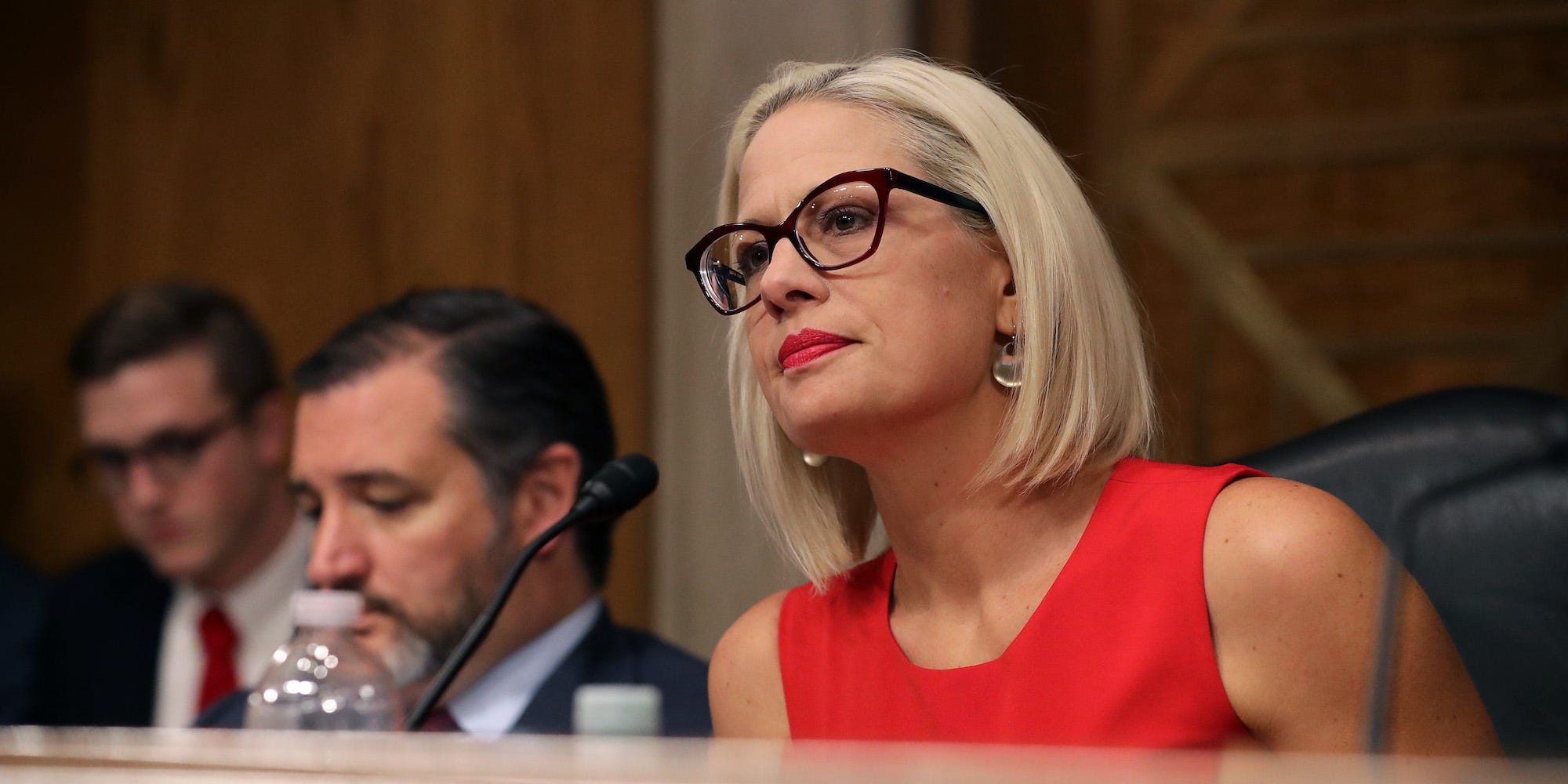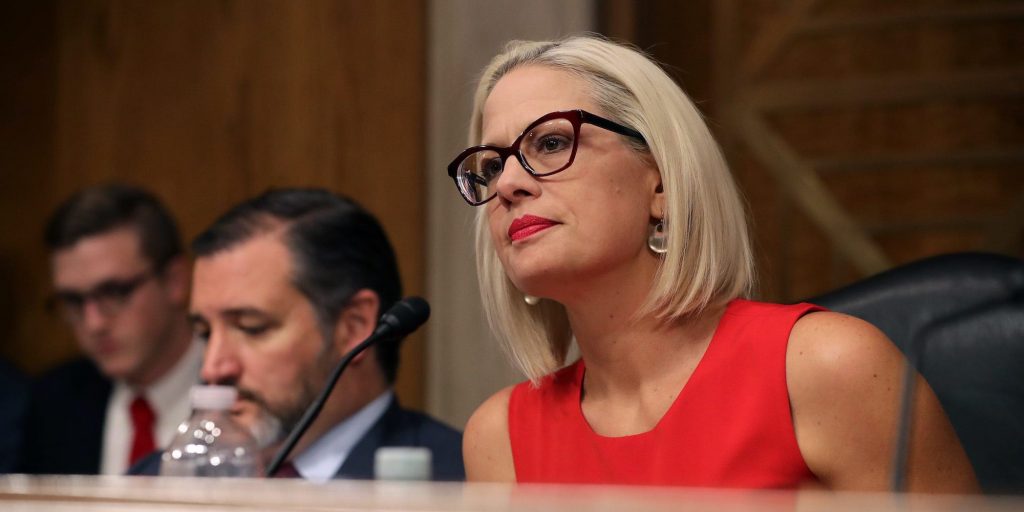
Chip Somodevilla/Getty Images
- Sen. Kyrsten Sinema's office denied reports that she wants billions cut in proposed climate programs.
- The New York Times reported she wants $100 billion in climate provisions slashed from the spending package.
- Sinema and Sen. Joe Manchin are holding out for a less expensive price tag on the economic agenda.
The office of Sen. Kyrsten Sinema, who got her start in politics as a progressive activist in the Green Party, denied reports that she wants at least $100 billion in climate programs cut from the Democrats' massive spending legislation currently stalled on Capitol Hill.
On Friday, The New York Times reported that Sinema is demanding significant cuts to proposed climate provisions in order to lower the price tag on President Joe Biden's spending agenda, which includes a $1 trillion infrastructure bill and a $3.5 trillion budget bill.
The Arizona lawmaker is one of two moderate holdouts sparring with fellow Democrats over the package's final price, with Sinema and Sen. Joe Manchin of West Virginia both repeatedly rejecting Biden's proposed price tag on the Build Back Better legislation.
Manchin has vowed not to support a bill that costs more than $1.5 trillion, and both centrists are crucial voices in the fight, as all 50 Democratic senators must support the legislation in order for it to pass.
In a statement to Insider, a spokesman for Sinema's office said reports that she wants climate provisions cut are not true.
"Neither Senator Sinema nor our office have requested or demanded such cuts, nor have we ever heard of any such demands," John LaBombard tweeted in response to the Times article. "Once again, the NY Times relies on anonymous sources and gets it flat wrong. Do better."
Party leaders have previously promised to safeguard two significant climate change programs costing $450 billion in total: the Clean Electricity Program, which incentivizes electric utilities to use wind, solar, and nuclear power, and a general climate package of tax incentives meant to encourage the use of clean energy.
But there are several other climate-focused programs that could theoretically be cut in order to shrink the bill, including multiple provisions aimed at helping poor people adapt to the effects of climate change, as well as a $30 billion "Green Bank," that would fund construction of community solar panels and electric vehicle charging stations.
Also on the table is $30 billion to create a "Civilian Climate Corps," encouraging young adults of color to pursue climate work, as well as a $10 billion program to incentivize rural electric cooperatives to switch from coal to wind and solar.
Climate scientists told The Times that such cuts could have a particularly harmful impact on Sinema's own constituents.
"Annual average temperatures in Arizona have already increased a couple of degrees due to climate change, which may not sound like much, but it has increased heat waves and droughts, it has lowered the snowpack which is essential to our water supply, and which flows in streams that are important to the health of wildlife, which is important to our ranchers and farmers," Gregg Garfin, a University of Arizona climatologist told the outlet.
"We need the work force," he added. "We need the funding. Many communities in Arizona lack the budget or expertise to do this. It requires real money. And it's super important for Arizona."
